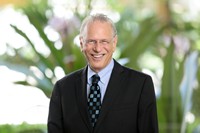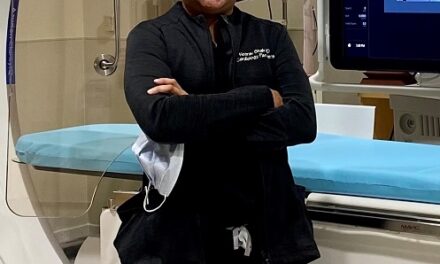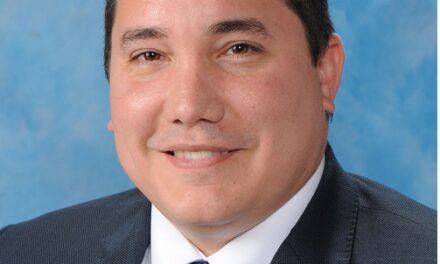By Steven G. Ullmann, PhD
The University of Miami Center for Health Management and Policy, housed in the Miami Herbert Business School, held its 11th annual Business of Health Care Conference. The theme this year was “Technology, Access and the New Normal.” With more than 1,000 registrants from the region, as well as nationally and globally, the audience reflected the geographic and sector diversity of the panels themselves.

One of the highlights of this conference series is representation of, and discussion among the various professional sectors of the health care industry. C-suite representation included the American Hospital Association, America’s Health Insurance Plans, the Health Care Financial Management Association, the National Medical Association and the American Nurses Association. Given the theme of the conference, significant discussion and insights came from the participants as moderated by Pat Geraghty, the President and CEO of GuideWell – Florida Blue, the conference’s presenting sponsor since its inception. The panel focused on many of the issues affecting us in our local health care community. Specific focus included the work force shortage that is affecting the ability of health systems and physician groups to provide adequate, high-quality care. The impact on the labor costs and resultant overall costs of facilities and clinical practices, and the impact on profits/net-revenues and financial viability of providers was discussed. Methods to mitigate the issue associated with workforce shortage including the high skill level required in this day and age were discussed as well. Training through state-of-the-art simulation (as exists at the hospital simulation facility at UM’s School of Nursing and Health Sciences), cross-training of skills among clinical staff, and use of Artificial Intelligence to bolster provision of care were seen as ways of enhancing the ability to provide adequate clinical care in the wake of current and ongoing clinical shortages. Telehealth was also discussed as a process that gained huge acceptance at the height of the pandemic, especially for primary care and behavioral health, and demonstrated the opportunities to extend service to underrepresented minorities, lower income communities and rural areas. Having said that, several concerns regarding telehealth were discussed. Concerns included whether individuals in lower income or rural communities had video access or only audio access, whether due to web access or the individual technical knowledge to link visually. Additionally, reimbursement as allowed by the federal government is to expire on December 31, 2022, and the question remains as to whether the current policy of reimbursement will continue.
Specific technologies were discussed in a second panel that focused on aspects of lifestyle and health with platforms and apps allowing for moderating and implementing healthy eating patterns and behavioral health support. Access with greater convenience, focusing on access points, i.e., where the patient/client is, in terms of location, psychological status, and social demographics were discussed. The goal is to give the patient/client better control of his/her health status with proper real time support.
The concept of access was brought to the fore in a discussion with Secretary of Health and Human Services, Alex Azar. Former Secretaries of Health and Human Services Azar and Donna Shalala both are on the faculty in the University of Miami’s Department of Health Management and Policy. Perhaps the most critical medical issue of our lifetime, the pandemic, occurred under Secretary Azar’s watch. Given Secretary Azar’s background in the C-suite of one of the major pharmaceutical companies nationally, Secretary Azar discussed how his understanding of risk associated with pharmaceutical and vaccine development, an understanding of new methodologies such as mRNA vaccines, and the significant issue associated with adequate production, storage, transportation, and distribution, as well as the issue of distributional justice associated with an initially scarce supply with huge demand required an interdisciplinary team of experts to effectively put into effect Operation Warp Speed … rolling out a new vaccine for this killer disease within a year … truly a remarkable feat. With the realization that hundreds of thousands have died, one can only imagine the multiples of hospitalizations and deaths that would have occurred in the absence of Operation Warp Speed. Secretary Azar, in his discussion with Professor Karoline Mortensen, also focused on several of his other areas of policy (until the pandemic required renewed focus). These other areas of discussion included medical record portability, price transparency and value-based purchasing.
As this conference came to a close, planning was already underway for next year’s Business of Health Care Conference. We look forward to being totally in-person again in the years to come, discussing major areas of interact going forward.
Dr. Steven G. Ullmann, Professor and Chair, Department of Health Management and Policy, Director, Center for Health Management and Policy, and Special Assistant to the Provost at Miami Herbert Business School, University of Miami, can be reached at (305) 284-9920 or Sullmann@miami.edu.



























